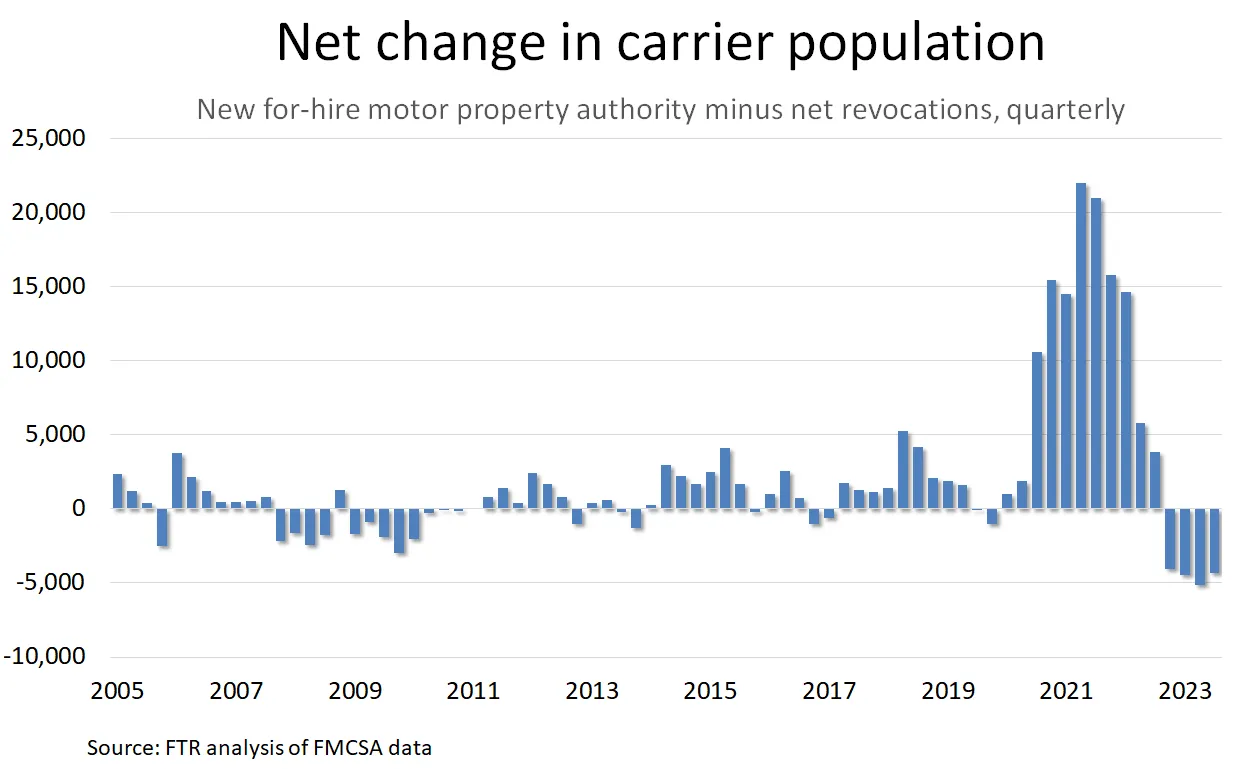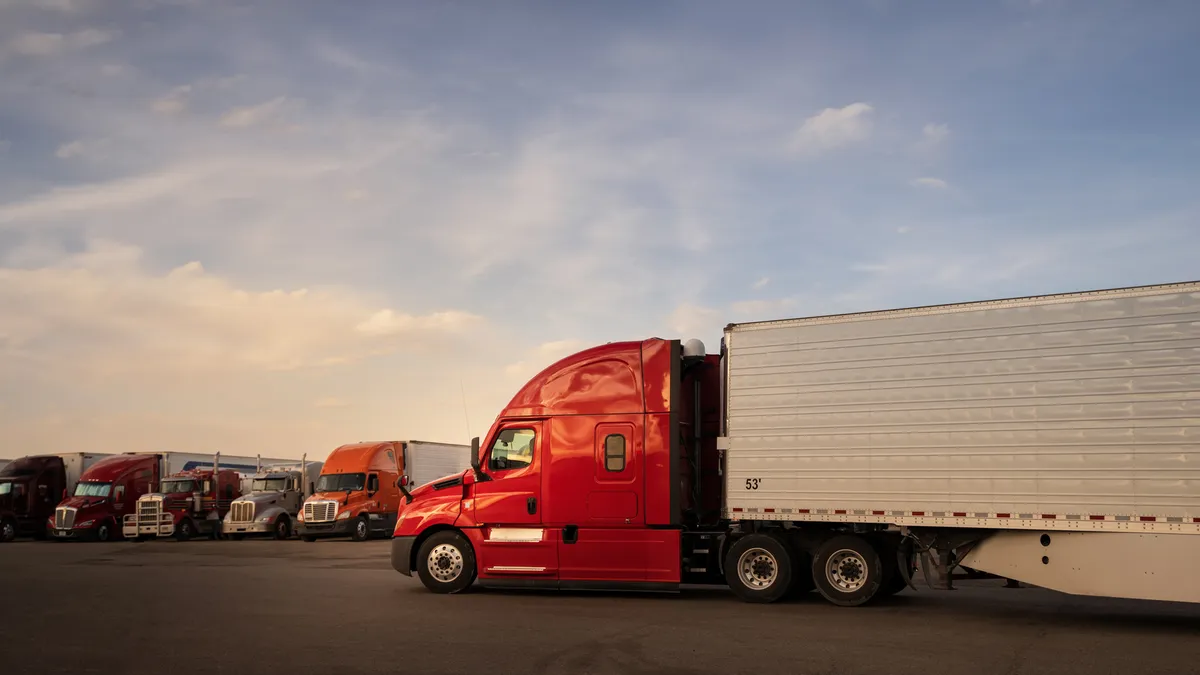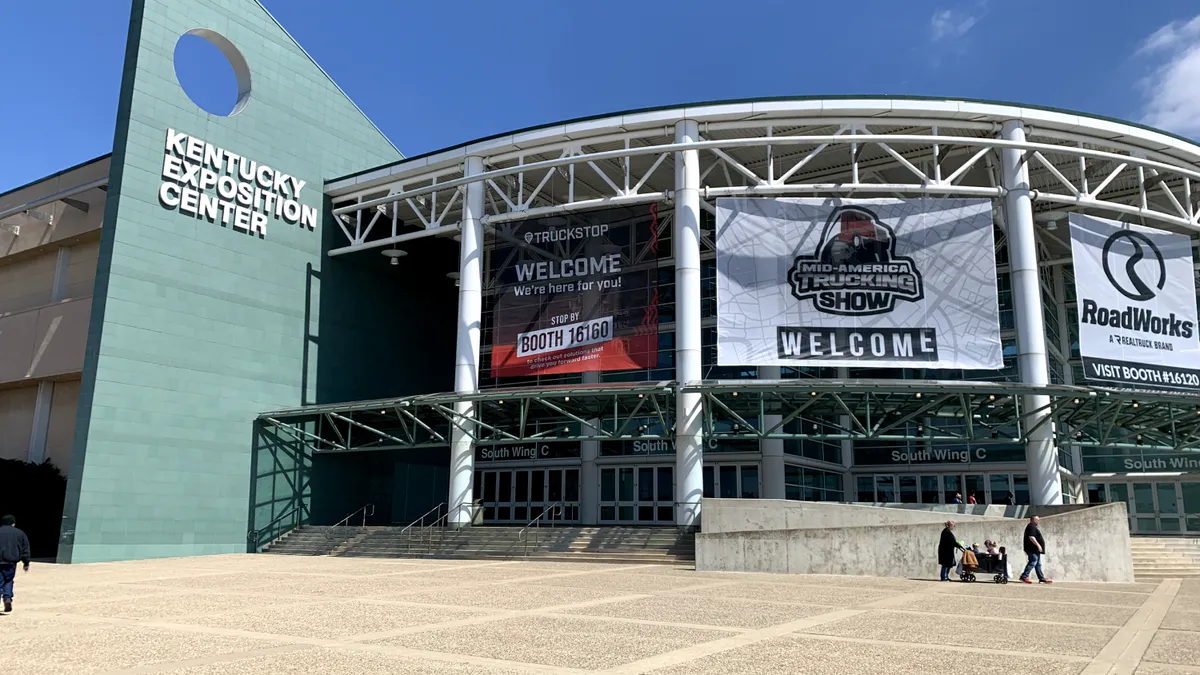Dive Brief:
- Ongoing weak demand and private fleet expansions are fueling hardships in trucking this year, according to analysts.
- Weak demand means a trucking recovery likely won’t happen this year, according to Michigan State University’s Supply Chain Management Professor Jason Miller.
- Meanwhile, private fleet expansions are putting pressure on an already fragile environment, ACT Research also noted. Private fleet growth is adding capacity to an already crowded industry, which ACT said could be “delaying the recovery in rates.”
Dive Insight:
Enormous freight demand during the pandemic led to overcapacity, and retailers eventually destocked when the market changed. That’s left the transportation industry with a lingering sluggishness.
That overcapacity is still rightsizing, large trucking firm CEOs say, and the makeup of carriers will continue to unfold in the coming months given diesel prices and a lag in carrier revocations surfacing in federal data, FTR VP of Trucking Avery Vise said.

Carriers have continued to exit the industry. In Q2 departures exceeded a net change of negative 5,000, and in Q3 that lessened to negative 4,300, per FTR data.
“That's down about 800 from the second quarter, which is an all-time high, but basically, if you look at the last four quarters there, they're all the largest on record,” Vise said.
Although the industry expects a muted peak season this year, Q3 earnings calls may shed further light on the industry’s health and what to expect over the next few months.
“A muted peak import season and lower production in freight-centric sectors, including the manufacturing of paper, wood, plastic, and rubber products, suggest a freight recovery in 2023 is improbable,” DAT Principal Analyst Dean Croke noted in a blog post.
With little improvement projected this year, “the best-case scenario is for improvement in Q2 2024,” Miller said in a LinkedIn post.
FTR’s Vise shared a similar sentiment. “We really don't see any dynamic that leads to a recovery until probably at least the beginning of the second quarter next year,” he said. “We don't see enough freight demand. And the amount of capacity that would have to come out at the system is just too great.”













